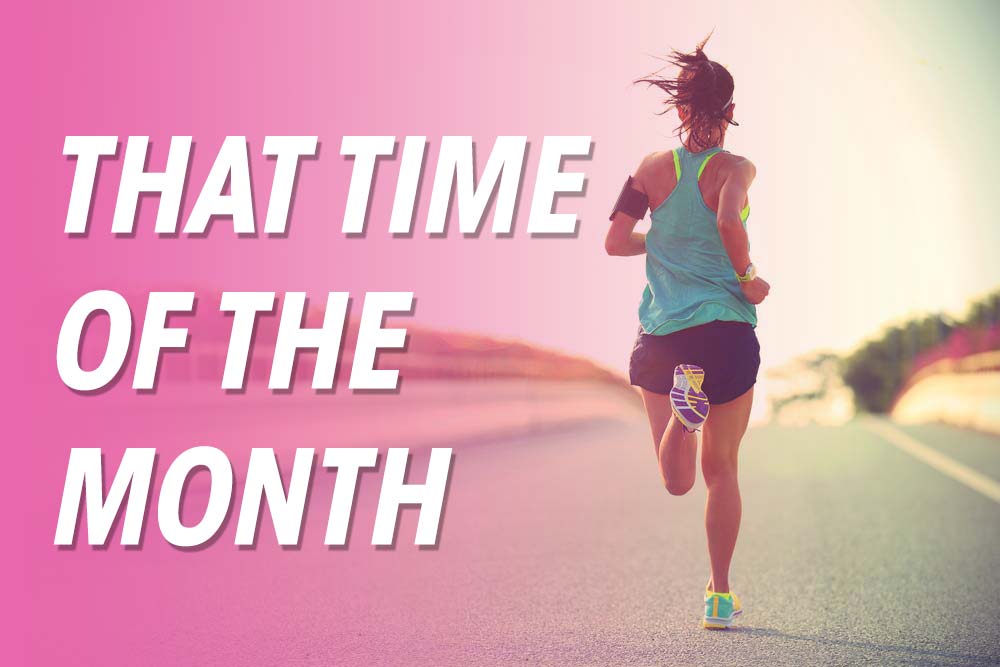About the Author : Dr Erika Patel, Fertility specialist
Dr Erika Patel is a fertility specialist in Chennai. She did her obstetrics and gynaecology from Vadodara. Her connection with Chennai began when she moved here to pursue her MCh in reproductive medicine and surgery at the Sri Ramachandra Medical College, Porur. In addition to pursuing a PhD in her Alma Mater, Dr Patel also works as a consultant at NOVA IVI fertility, MRCNagar.
She discovered running three years ago and has been hooked since. She loves running with her group, the Pettai Rappers, and is consistent with her training. She enjoys long, slow distance runs as much as she does her speed and interval-oriented regimen once every week. As a woman runner, Dr Patel is keen to inculcate more women into running, enabling them to understand their bodies and enjoy the benefits of this sport.
Article
There is a common misconception that menstruation impairs athletic performance or that it’s unsafe or inappropriate to run while having your period. Before going into the details of it, lets understand the different phases of the menstrual cycle.
A typical 28-30 day menstrual cycle can be divided into 2 halves. First half is called the follicular phase. In this phase your estrogen hormone slowly starts to rise . Estrogens marginally enhance the athletic performance and runners usually feel more energetic during this period. After ovulation on the 14th day, starts the second phase which is called the luteal phase where the hormone Progesterone starts to rise. Intense training during this phase is a little more tougher than the follicular phase. Also, you may feel very lethargic in the last few days of the cycle, just before the start of next period due to bloating.
Coming to the first 3-4 days of menses, if you have a very heavy flow, you may want to skip the run. Running with heavy flow may make you feel dizzy and tired. It will affect your pace as well as your heart rate. Also, it may become uncomfortable to run longer distances with heavy flow. On the other hand, running before and during your periods will actually be helpful in allievating your prementrual stress and irritation. There are certain hormones which are known to increase during exercise like endorphins, growth hormone, prolactin and adrenal hormones. These hormones will help in reducing the menstrual cramps as well.
In women with irregular periods due to obesity or Polycystic ovarian syndrome, running and exercise will actually help in regularising the dates much more than medication. In fact, just a 5% reduction in weight is required to initiate ovualtion and getting regular periods in these women.
There are a few studies about the apparent increased incidence of significant injuries — ankle sprains, anterior cruciate ligament (ACL) tears and others — in female athletes compared with their male counterparts. Blaming it on “hormones” is common. It is possible that variations in female hormones through the menstrual cycle change the function of bones, joints, tendons, or ligaments, and that these changes could have an impact on performance or likelihood of injury. Then again, these studies are simply observations of certain patterns — they don’t prove a connection between phases of the menstrual cycle and injury.
What to do during an event?
If you are training for an event and your periods are anticipated on the exact same dates, the options you have are – you can either delay them by a few days with medication ( Yes! It is ok to do so ) , if you are expecting a heavy flow on race day then medication to reduce the flow can also be tried. Tampons are a better bet for longer distance when compared to sanitary pads. Keep an extra tampon in your waist pouch. Sanitary pads will cause chafing which could be very painful. Although my strong advice is not to self medicate. It is advisable to consult your doctor and take only the prescribed medicines.
Clearly, women with premenstrual or menstrual symptoms may not feel like exercising. But there is no compelling evidence that running or athletic activities should be avoided or altered based only on what part of the menstrual cycle you’re in. When Uta Pippig won the Boston marathon in 1996, she had blood pouring down her leg as she crossed the finish line. Her performance clearly wasn’t adversely affected by her period. Good training may reduce the risks of injury and enhance performance much more than trying to time exercise around one’s periods.

